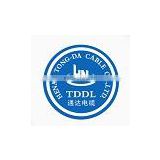ASTM B399 AAAC Conductor
USD $0.1 - $5 /Ton
Min.Order:1 Ton
Quick Details View All >
Product Details
The light weight all aluminium alloy conductor has such advantages as high strength, nonexistance of electrochemical corrosion, long service life, sound electricity conductivity, etc. It is used to transmit current and is made through stranding aluminium alloy wires instead of aluminium wires in a spiral manner and according to a certain rule. It's tensile strength is 1.7-1.8 times of that of an ordinary conductor. The rigidity of our AAAC is very high so the surface scratch when putting up transmission lines can be minimized and the construction quality can be greatly improved.
Standard
Our AAAC conductor meets the standards of ASTM B399, BS EN50183, BS 3242,DIN48201,IEC 61089 ,etc, we can also produce according to your requirements.
Application
The AAAC is used for overhead power transmission lines , especially the electric power augmentation of old transmission lines. We specialized in the research and application of AAAC for almost ten years. When replacing the aluminium conductor steel reinforced , the AAAC can save 5-8% of the construction cost. This AAAC covers aluminium alloy (hard solution, heat-treated, cold worked, and artifically aged) round wires for electrical purposes to be used as component wires of aluminium alloy conductor and aluminium alloy conductor steel reinforced.
Construction
Standard 6201, 6101 aluminum alloy conductors, are concentric-lay- stranded, similar in construction and appearance to 1350 grade aluminum conductors. They were developed to fill the need for an economical conductor for overhead applications requiring higher strength than that obtainable with 1350 grade aluminum conductors, but without a steel core. The DC resistance at 20°C of the 6201,6101 conductors and of the standard ACSR of the same diameter are approximately the same. Conductors of the 6201,6101 alloys are harder and, therefore, have a greater resistance to abrasion than conductors of 1350-H19 grade aluminum.
Features
1. high strength
2. nonexistance of electrochemical corrosion
3. long service life
4. sound electricity conductivity
5. long distance power transmission
Contact Supplier

You May Like

New Products
Popular Searches
Recommended Products
Find Similar Products By Category